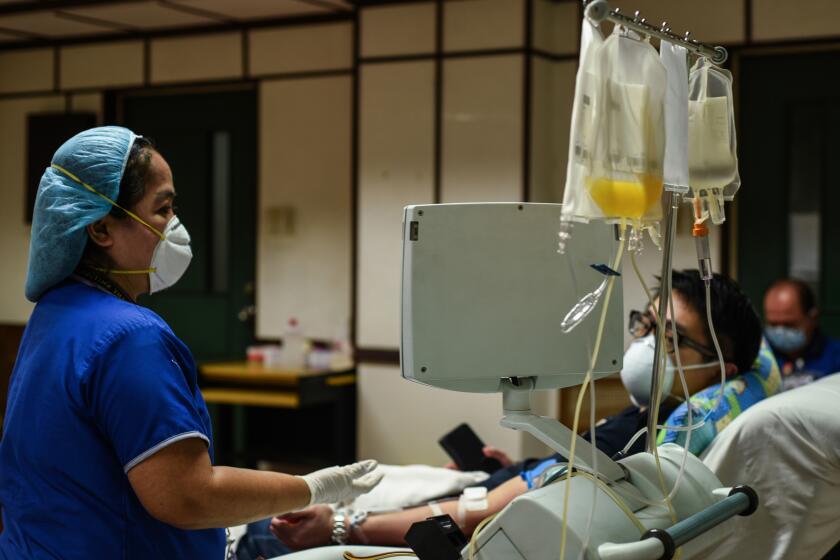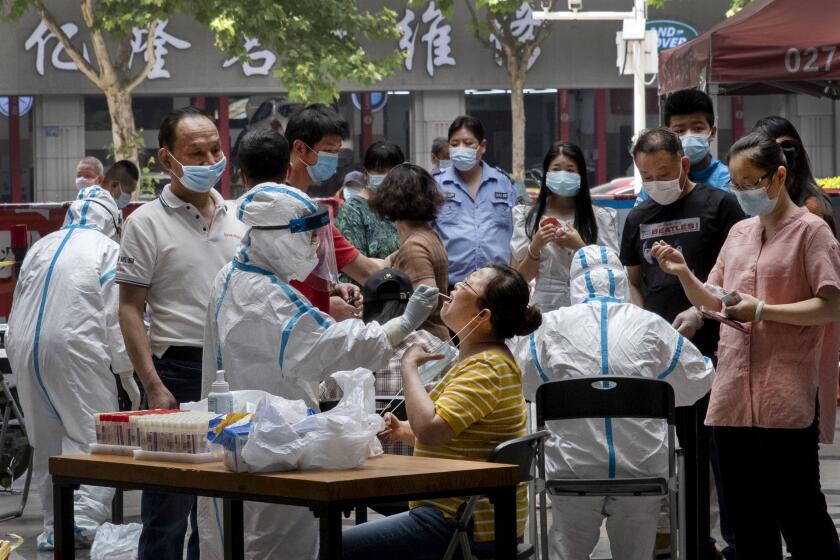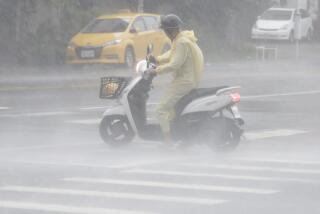Strong typhoon slams into pandemic-stricken Philippines

MANILA — A strong typhoon slammed into the eastern Philippines on Thursday, knocking out power and threatening food crops in a new emergency for a country already overwhelmed by the coronavirus pandemic.
Typhoon Vongfong blew into Eastern Samar province at noon with fierce rain and wind as tens of thousands of people were being evacuated to safety in provinces along its northwestward path through the country’s most populous region. There were no immediate reports of casualties or major damage.
After landfall, the storm maintained its maximum sustained winds of about 96 mph but its gusts intensified to 158 mph, weather agency administrator Vicente Malano said.
The typhoon hit as the Philippines struggles to deal with coronavirus outbreaks, largely with a lockdown in the main northern region of Luzon that is to be eased this weekend, except in metropolitan Manila and two other high-risk areas. The rest of the country will be placed in less restrictive quarantines, and crucial businesses will partially reopen starting next week after the economy contracted in the first quarter.
More than 11,800 coronavirus infections, including 790 deaths, have been reported in the country.
“This is a double whammy,” Eastern Samar Gov. Ben Evardone said by telephone. “Psychologically, the people are already struggling with COVID and now we have this typhoon.”
Evardone said the entire province lost power, apparently as a result of downed electricity lines. Six northern towns could not be reached by cellphone or two-way radio, and the storm hit during the harvest season for rice and corn, he said.
The Philippines tries to lure its nurses to stay to help on front lines against COVID-19, but a legacy of exploitation frustrates the effort.
Neighboring Northern Samar province also lost power, Gov. Edwin Ongchuan said by telephone, adding that authorities will survey the damage after the storm.
Ongchuan said he asked for twice the usual number of school buildings to be turned into typhoon shelters to accommodate thousands of displaced coastal residents because of the required social distancing, aimed at reducing coronavirus contagion.
Overcrowding in emergency shelters has been common in an archipelago that is lashed by about 20 typhoons and storms annually and is often hit by volcanic eruptions and earthquakes.
In Eastern Samar’s far-flung Jipapad town, Mayor Benjamin Ver said by telephone that social distancing is “almost impossible” to enforce, with only the town hall and a small gymnasium serving as evacuation shelters for about 8,000 residents in the flood- and landslide-prone municipality.
Ver said he has secured enough protective masks for villagers who take shelter in the town hall.
Eastern Samar, a province of half a million people, remains free of confirmed coronavirus infections, unlike neighboring regions, Evardone said. All emergency shelters have been turned into quarantine facilities with medical equipment in case of outbreaks, but may have to revert to evacuation centers if large numbers of people need shelter, he said.
One month after the city of Wuhan, China, celebrated its reopening, new COVID-19 infections emerge.
Metropolitan Manila will not be hit directly by the storm but may be lashed by strong winds. Officials were advised to remove many medical quarantine tents set up outside hospitals that could be blown away, said Malano, the weather agency administrator.
The impoverished eastern region initially hit by Vongfong was devastated in 2013 by Typhoon Haiyan, which left more than 7,300 people dead or missing, flattened entire villages, swept ships inland and displaced more than 5 million.
More to Read
Sign up for Essential California
The most important California stories and recommendations in your inbox every morning.
You may occasionally receive promotional content from the Los Angeles Times.












